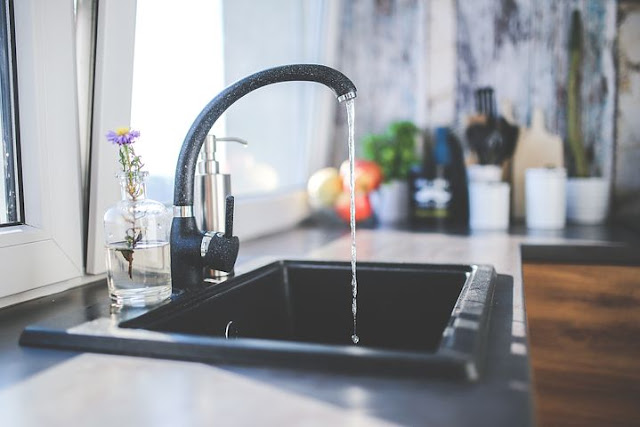In areas with hard water, water treatment and management is necessary to protect household appliances and fixtures from corrosion and ensure the delivery of clean and safe water for drinking, bathing, and cleaning. While there are many methods for treating hard water, one of the most common is using a water softener. Let's take a closer look at the relationship between water hardness, taps, and health. And tips on how to manage water hardness in your home.
 |
| Taps, Water Hardness And Health: What Connects Them And How To Manage It [image: pixabay] |
What Is Tap Water?
Tap water is the water that comes out of your taps in your home. It's what you drink, cook with, and bathe in. The quality of tap water can vary from city to city and even neighborhood to neighborhood.
The pH of tap water refers to its acidity or alkalinity. A pH of 0 is completely acidic, while a pH of 14 is completely alkaline. Tap water typically has a pH between about six and eight. This means it's slightly acidic but still safe for drinking.
However, if the pH of your tap waterfalls outside this range, it could be a sign that there are problems with your plumbing or with the treatment process at the municipal plant. In either case, it's best to have the water tested by a professional.
What Is Water Hardness?
Water hardness measures the number of dissolved minerals in the water. It's usually measured in grains per gallon (GPG) or parts per million (PPM). These minerals can include calcium, magnesium, iron, and manganese. The higher the concentration of these minerals, the harder the water is. Water with a high concentration of minerals is often called hard water.
Hard water can cause problems in your home, including:
Staining on dishes and clothes
Scale build-up on taps, faucets, pipes, and appliances
Reduced efficiency of hot water heaters
Damage to plumbing fixtures over time
If you have hard water in your home, there are several things you can do to minimize its effects:
Use A Water Filter
Another option for combating the effects of hard water is to use a water filter. Water filters can remove some or all of the dissolved minerals in the water to be more refreshing to drink, depending on their type and rating. Many different water filters are available, from pitchers and faucet-mount filters to whole-house systems. If you have hard water, it's a good idea to use a filter with an activated carbon cartridge. It will help to reduce staining and scale build-up. You can find water filters at most home improvement stores or online a water filter to reduce the concentration of minerals in your tap water.
Install A Water Softener
A water softener removes the minerals that make water hard. It can help prevent scale build-up and reduce staining. If you have a large home with multiple bathrooms, installing a whole-house water softener may be more cost-effective. If you only have one or two bathrooms, a point-of-use water softener may be a better option.
Point-of-use water softeners are small units that attach directly to your taps. They are less expensive than whole-house systems, but they also require more maintenance. You will need to refill the salt tank and clean the resin bed periodically. You can find both whole-house and point-of-use water softeners online or at your local hardware store.
Adjust Your Hot Water Heater Temperature
If you have a hard time getting your clothes or dishes clean, you may need to adjust the temperature of your water heater. Most water heaters are set to produce water about 140 degrees Fahrenheit. If you have hard water, try raising the temperature to 150 or even 160 degrees. It will help to reduce scale build-up and improve cleaning performance. Be sure to consult your owner's manual before making any adjustments to your water heater.
Use A Dishwasher Detergent For Hard Water
There are many dishwasher detergents specifically designed for use in hard water areas. These detergents contain unique ingredients that help break down the minerals in hard water and prevent them from building up on dishes and glassware.
How Does Water Hardness Affect Health?
 |
| [image: pixabay] |
It's essential to remember that hard water is not harmful to drink. It can be healthier than soft water because it contains more minerals. However, excess calcium and magnesium can be bad for your health. They can contribute to heart disease, kidney stones, and other health problems. That's why it's essential to manage your water hardness levels if you live in a hard water area.
You can combat the effects of hard water by installing a water softener, using a water filter, or adjusting the temperature of your water heater. You can also use a dishwasher detergent designed for use in hard water areas. Remember that hard water is not harmful to your health, but it can contribute to health problems if you have too much calcium and magnesium in your water. So be sure to manage your water hardness levels if you live in a hard water area.

No comments:
Post a Comment
Please Leave a Comment to show some Love ~ Thanks